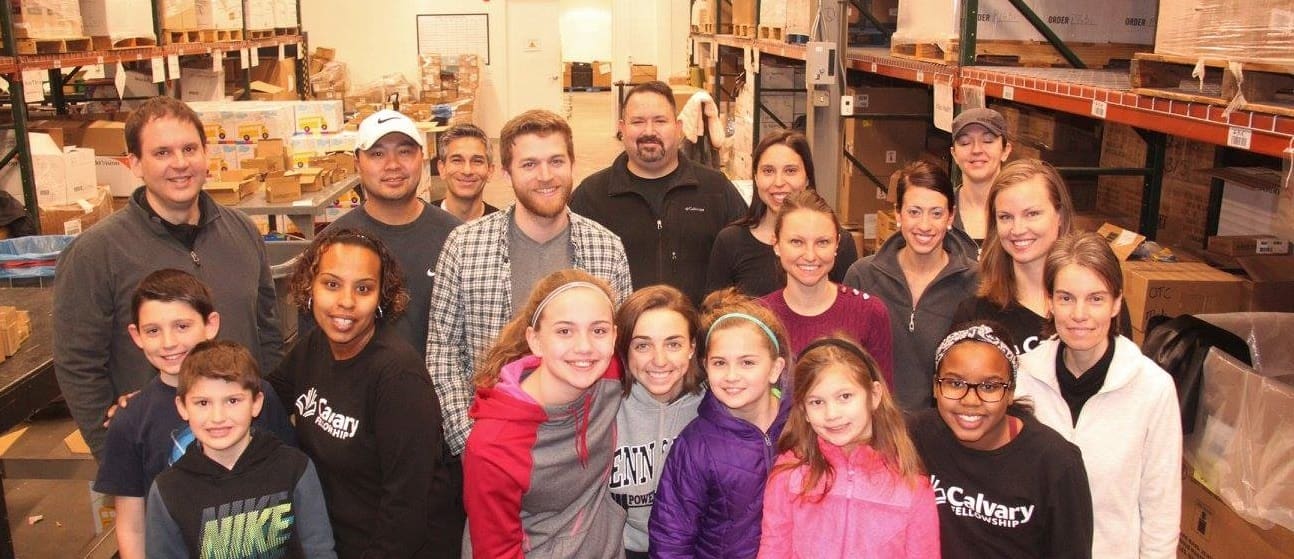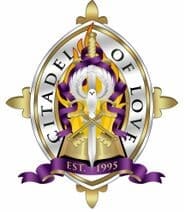Impact AreaBasic NeedsFood, Clothing, Shelter
children in Greater Hartford lack the food needed to learn and grow.
1 in 7
residents in Hartford County live in a food insecure household.
2 in 5
people who are food insecure have household incomes too high to qualify for many nutrition assistance programs.
We believe that every one of us is a child of God, made in the image of God – and as such, deserves the dignity and grace of having their most basic needs met. We partner with churches and organizations to strengthen their basic needs programs by equipping them to foster a culture that affirms the dignity and potential of each person, connect people to support in the community, and implement programming that helps people further develop life skills to address their needs.
What Guides Us
Matthew 25: 35-36a, 40b
There are dozens of ways to engage with the challenges that come with meeting basic needs. Below are some of the key principles that drive our work and that we seek to pass on to our our partners.
More Than Food
Using the More than Food Framework, Urban Alliance equips basic needs ministries to meet crisis needs in a dignified and respectful way
Creating a Welcoming Environment and Dignified Experience
Remembering that those we serve are made in God’s image changes the way we serve.
Warm Referrals to Community Programs
We are #bettertogether! Sometimes, the best way we can help someone is to connect them with someone who is better equipped than we are.
Impacting the Charitable Food System
Working with regional and national organizations to address root causes and common problems to realize lasting change.
How We Make an Impact
We provide churches and organizations in our network with peer groups, training, toolkits, consultation, grants, supplies and volunteers to build stronger food pantries, community meal sites, clothing banks, transitional living facilities, sober houses and other basic needs programs.

Free Grocery Distributions
Partnering with organizations like Midwest Food Bank, Urban Alliance helps UA Network Partners host free grocery distribution events in their communities by providing publicity materials, coordinating food deliveries, providing volunteers, and scheduling events.

Farmers Market Coupons
As part of our Annual Community Outreach Day, Urban Alliance volunteers distribute over 10,000 resource bags to neighbors in Hartford. One of the things included in those bags is a coupon to a local Farmers Market, providing fresh produce and highlighting healthy food options.

Essential Supplies Program
Our on-site Distribution Center, in partnership with World Vision, connects critical resources like personal hygiene items, socks and undergarments, childcare items (diapers, formula), and more with programs that put them to good use.

Training & Equipping
Basic Needs programs may focus on one particular need (hunger, for example), but they serve people with complex situations and multiple needs. Urban Alliance shares best practices for those immediate needs, provides training to help direct people to additional resources, equips leaders to deal with relevant issues in mental health, provides communities to share experiences and support, and more.

UAServe Volunteers
Why is it so hard for programs to find volunteers ... or for qualified people to find places to serve? The UAServe program is a way to connect volunteers and programs in the UA Network.
The UA Network in Action
A few of the UA Network Programs adressing basic needs:
My Brother’s Keeper
Janet’s Closet
Food Pantry
You Can Help Meet Basic Needs
Invest in Your Community
Partnering with Urban Alliance means not just helping your neighbor receive the food, clothing, and shelter that all of us need – you can be sure that those neighbors are also being treated with dignity, that they are receiving holistic care from well equipped and resourced programs, and that the root causes of poverty and hunger are being addressed.
Volunteer with UAServe
Helping to meet our neighbors’ needs is a powerful way to express God’s love to the individuals in our communities.
If you have a heart for those in need and the time to invest in making a difference, UAServe can help connect you with a program that needs your help!
More than Food
Maslow’s hierarchy suggests that all people have a number of different types of needs. Some needs, such as hunger, pain, lack of shelter create a crisis situation. These felt needs must be addressed first to alleviate distress. However, in order to change a person’s life situation in a long-term sustainable way, needs such as continued education, the ability to earn a living wage, and a strong support network must also be met. Using the More than Food Framework, Urban Alliance equips basic needs ministries to meet crisis needs in a dignified and respectful way, as well as create opportunities for people to develop new skills and practices that lead to greater life stability.
Warm Referrals to Community Programs
One program cannot meet every need and supporting meaningful change in a person’s life requires collaborations between multiple service providers. Urban Alliance equips staff and volunteers so they are familiar with programs in the community, have information on hand about community programs, and offer warm referrals. Some programs even have resource coaches available to support guests as in setting goals, creating an action plan for accomplishing these goals, and connecting to needed supports in the community.
Creating a Welcoming Environment and Dignified Experience
Values guide our beliefs about the people we serve and the policies and procedures that guide programming. Urban Alliance offers space for program leaders to reflect on person and organizational values and encourages leaders to offer programming that is strength-based, welcoming, trauma-informed and acknowledges the infinite value of each person.
Impacting the Charitable Food System
Urban Alliance has strategically worked with other organizations in the community to impact the way nonprofits address the issue of hunger. For example, Urban Alliance staff have participated in CT Foodshare’s Hunger Action Teams and the CT Commission on Food Policy. Further, we have partnered with organizations such as CT Foodshare to develop training and tools to equip food banks and pantries nationally. For example, during COVID, we partnered with Feeding America to pilot an innovative approach to addressing food insecurity using a combination of resource coaching and financial literacy coaching.



